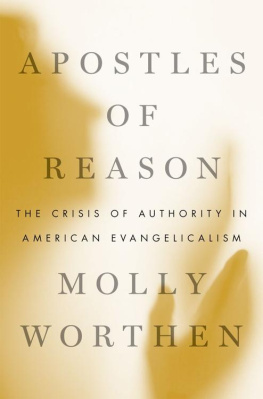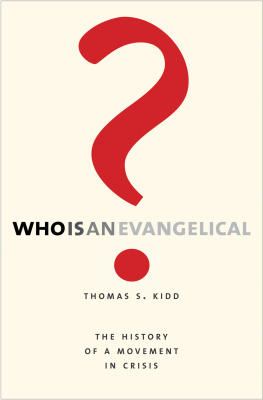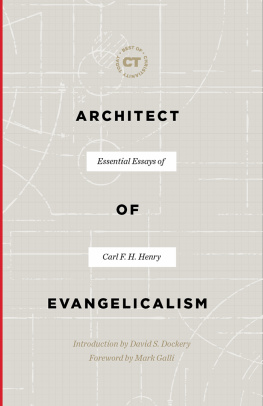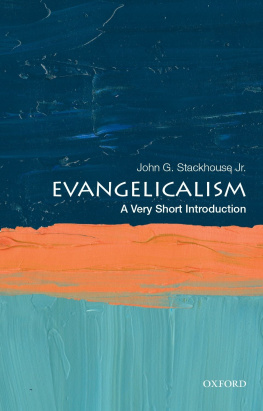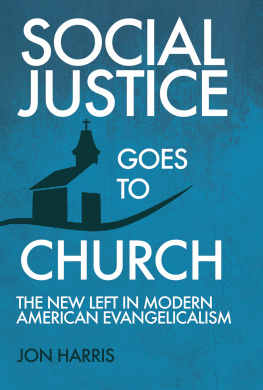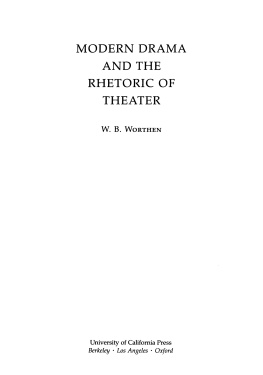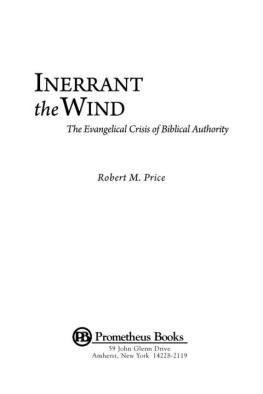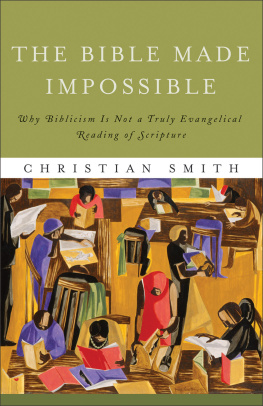Apostles of Reason
The Crisis of Authority in American Evangelicalism
Molly Worthen


Oxford University Press is a department of the University of Oxford.
It furthers the Universitys objective of excellence in research, scholarship,
and education by publishing worldwide.
Oxford New York
Auckland Cape Town Dar es Salaam Hong Kong Karachi
Kuala Lumpur Madrid Melbourne Mexico City Nairobi
New Delhi Shanghai Taipei Toronto
With offices in
Argentina Austria Brazil Chile Czech Republic France Greece
Guatemala Hungary Italy Japan Poland Portugal Singapore
South Korea Switzerland Thailand Turkey Ukraine Vietnam
Oxford is a registered trademark of Oxford University Press
in the UK and certain other countries.
Published in the United States of America by
Oxford University Press
198 Madison Avenue, New York, NY 10016
Oxford University Press 2014
All rights reserved. No part of this publication may be reproduced, stored in a retrieval system, or transmitted, in any form or by any means, without the prior permission in writing of Oxford University Press, or as expressly permitted by law, by license, or under terms agreed with the appropriate reproduction rights organization. Inquiries concerning reproduction outside the scope of the above should be sent to the Rights Department, Oxford University Press, at the address above.
You must not circulate this work in any other form
and you must impose this same condition on any acquirer.
Library of Congress Cataloging-in-Publication Data
Worthen, Molly.
Apostles of reason : the crisis of authority in American evangelicalism / Molly Worthen.
pages cm
ISBN 978-0-19-989646-2 (hardback)
1. EvangelicalismUnited States. I. Title,
BR1642.U6W67 2013
262.80973dc23 2013012871
1 3 5 7 9 8 6 4 2
Printed in the United States of America
on acid-free paper
For Michael
Contents
Part I
Knights Inerrant
Part II
To Evangelize the World
Part III
Let Them Have Dominion
APOSTLES OF REASON
For the honest infidel, according to the American Evangelical pulpit, there is no heaven. Why should the fatal gift of brain be given to any human being, if such gift renders him liable to eternal hell? Better be a lunatic here and an angel there. Better be an idiot in this world, if you can be a seraph in the next.
Robert Ingersoll, 1881
Americans since 1800 have in effect been given the hard choice between being intelligent according to the prevailing standards in their intellectual centers or being religious according to the standards prevalent in the denominations. This really is no secret.
Sidney Mead, 1963
Of all Americas religious traditions, evangelical Protestantism, at least in its twentieth-century conservative forms, has ranked dead last in intellectual stature.
Alan Wolfe, 2012
S ECULAR INTELLECTUALS HAVE NOT BEEN KIND TO THE EVANGELICAL MIND. They are inclined to see evangelicals as a menace to progress and free thought. Yet their scorn cannot erase a vexing fact: American evangelicals, so maligned as anti-intellectual, have a habit of taking certain ideas very seriously. True conversion is, of course, a matter of the heart. One cannot cogitate all the way to Jesus. However, if your heart is right with Christ, your head must be in order too. Evangelicals have always understood the sins of modern life as both the misadventures of unsaved souls and as the fruit of intellectual error, even as they have disagreed on the best path to salvation and enlightenment.
There is no denying that the Bible has tremendous power among evangelicals, or that pastors, activists, and other leaders wield influence over their flocks. However, evangelicals are less like Jesus and more like Jacob. They constantly wrestle with the forces that rule them.
The central source of anti-intellectualism in evangelical life is the antithesis of authoritarianism. It is evangelicals ongoing crisis of authoritytheir struggle to reconcile reason with revelation, heart with head, and private piety with the public squarethat best explains their anxiety and their animosity toward intellectual life. Thinkers in the democratic West celebrate their freedom of thought but practice a certain kind of unwavering obediencebowing to the Enlightenment before all other godsthat allows modern intellectual life to function. Evangelicals, by contrast, are torn between sovereign powers that each claim supremacy.
To some degree, this is a universal human problem. All of us, at one time or another, find ourselves tormented by rival pressures and drawn toward incompatible goods. Evangelicals theological heritage, however, has aggravated this plight. Their intellectual history is peppered with compromises, sleights of hand, and defensive maneuvers, a combination of pragmatism and idealism that has made evangelicalism one of the most dynamic and powerful phenomena in Christian history, as well as a minefield for independent thought.
This storys most recent chapter began with the assembly of a small group of evangelical thinkers in the years after World War II. These men sought to banish the stereotype of evangelicals as unschooled rubes and to mold disparate believers into a single evangelical mind. Any consensus they achieved was imaginary, but sometimes fiction is nearly as powerful as truth. Their ideas spurred other thinkers across a spectrum of theological traditions to reconsider the essence of what it meant to be evangelical in modern America. Even if no single set of doctrines can neatly summarize evangelicalism, its leaders found themselves circling around a common set of questions that had preoccupied their communities for hundreds of years. They grappled with these dilemmas not in secluded cells cordoned off by creed, but in the same whirl of social change and global upheaval through which all Americans trekked toward the end of the twentieth century. Like everyone else, they were looking for firm footing. They craved an intellectual authority that would quiet disagreement and dictate a plan for fixing everything that seemed broken with the world. They did not find it, and are still looking.
The challenges they encountered and the solutions they devised had implications for American politics, but this book is not a chronicle of the Christian Right. Few of the actors in these pages thought of themselves as political activists (though a small number did). We cannot comprehend conservative Protestants, or their place in American culture, solely in terms of values voting. We have to take seriously the intellectual traditionsboth those peculiar to Christian circles, and those circulating in the broader bazaar of ideasthat have influenced the way evangelicals think about the world. American evangelicals are not just followers of an ancient faith. In recent decades, they have proved themselves to be both the challengers and children of the Cold War age of ideology and the fight to saveor scrapWestern civilization.
The term evangelical has produced more debate than agreement. The word is so mired in adjectives and qualifiers, contaminated by politicization and stereotype, that many commentators have suggested that it has outlived its usefulness.continue to use the word

